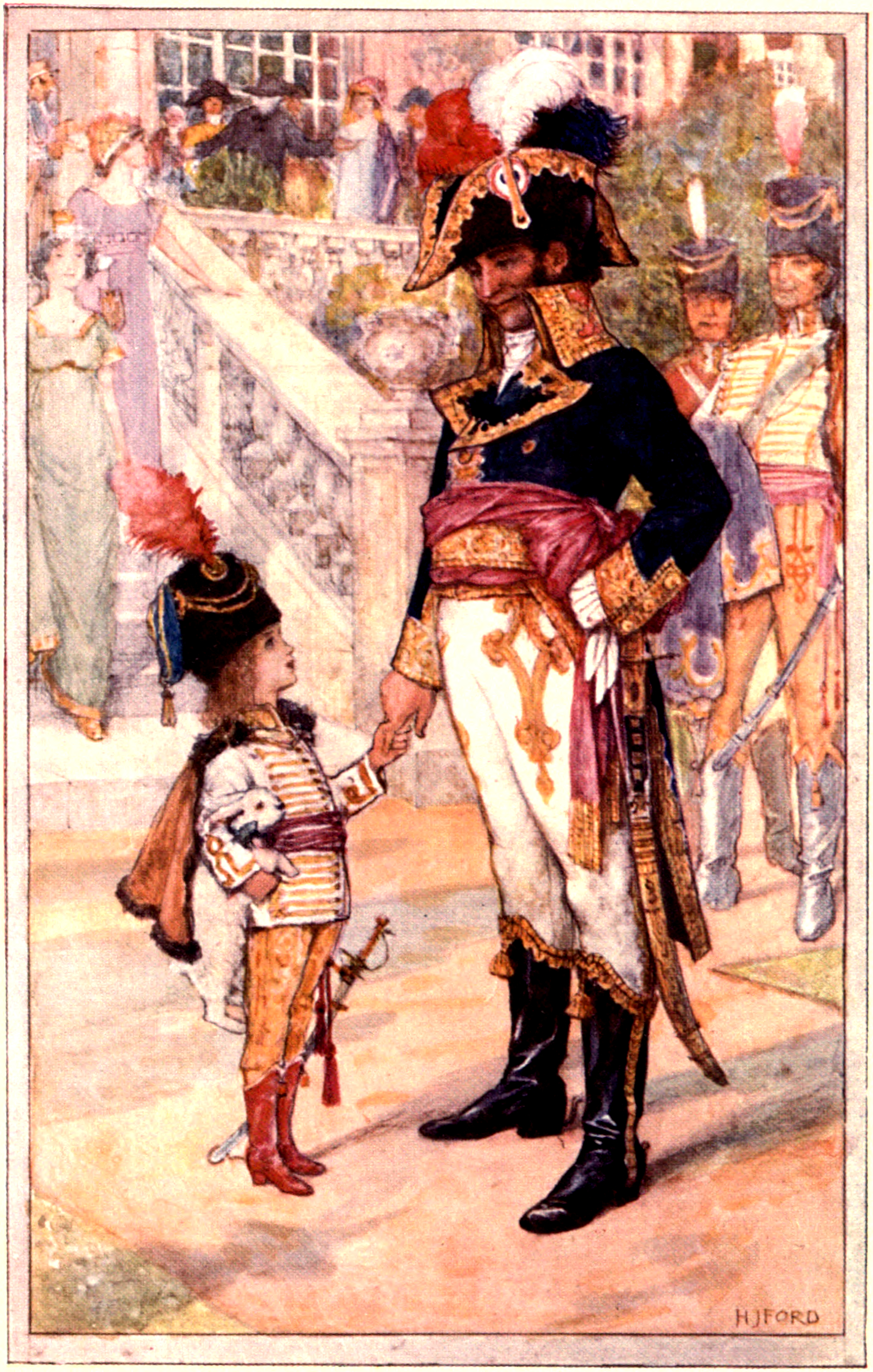|
Paul De Musset
Paul Edme de Musset (7 November 1804 – 17 May 1880) was a French writer. He was born in Paris, the elder brother of Alfred de Musset. Paul de Musset's career centred largely on the life and achievements of his more famous brother. In 1859, two years after the death of his brother, Paul de Musset published ''Lui et Elle'', a parody of George Sand's autobiographical work '' Elle et Lui'', published six months previously, dealing with her relationship with Alfred de Musset. In 1861, he married Aimée d'Alton, who had also been involved with Alfred de Musset and to whom she had been engaged in her youth. He was buried at the Père Lachaise Cemetery Père Lachaise Cemetery (french: Cimetière du Père-Lachaise ; formerly , "East Cemetery") is the largest cemetery in Paris, France (). With more than 3.5 million visitors annually, it is the most visited necropolis in the world. Notable figure ... in Paris. Bibliography (partial) * ''Voyage pittoresque en Italie, partie sep ... [...More Info...] [...Related Items...] OR: [Wikipedia] [Google] [Baidu] |
Alfred De Musset
Alfred Louis Charles de Musset-Pathay (; 11 December 1810 – 2 May 1857) was a French dramatist, poet, and novelist.His names are often reversed "Louis Charles Alfred de Musset": see "(Louis Charles) Alfred de Musset" (bio), Biography.com, 2007, webpageBio9413"Chessville – Alfred de Musset: Romantic Player", Robert T. Tuohey, Chessville.com, 2006, webpage. Along with his poetry, he is known for writing the autobiographical novel ''La Confession d'un enfant du siècle'' (''The Confession of a Child of the Century''). Biography Musset was born in Paris. His family was upper-class but poor; his father worked in various key government positions, but never gave his son any money. Musset's mother came from similar circumstances, and her role as a society hostess – for example her drawing-room parties, luncheons and dinners held in the Musset residence – left a lasting impression on young Alfred. An early indication of his boyhood talents was his fondness for acting impromptu m ... [...More Info...] [...Related Items...] OR: [Wikipedia] [Google] [Baidu] |
George Sand
Amantine Lucile Aurore Dupin de Francueil (; 1 July 1804 – 8 June 1876), best known by her pen name George Sand (), was a French novelist, memoirist and journalist. One of the most popular writers in Europe in her lifetime, being more renowned than both Victor Hugo and Honoré de Balzac in England in the 1830s and 1840s, Sand is recognised as one of the most notable writers of the European Romantic era, with more than 70 novels to her credit and 50 volumes of various works including novels, tales, plays and political texts. Like her great-grandmother, Louise Dupin, whom she admired, George Sand stood up for women, advocated passion, castigated marriage and fought against the prejudices of a conservative society. Personal life Childhood Amantine Aurore Lucile Dupin, the future George Sand, was born on 1 July 1804 in Paris on Meslay Street to Maurice Dupin de Francueil and Sophie-Victoire Delaborde. She was the paternal great-granddaughter of the Marshal of Fr ... [...More Info...] [...Related Items...] OR: [Wikipedia] [Google] [Baidu] |
Elle Et Lui
Amantine Lucile Aurore Dupin de Francueil (; 1 July 1804 – 8 June 1876), best known by her pen name George Sand (), was a French novelist, memoirist and journalist. One of the most popular writers in Europe in her lifetime, being more renowned than both Victor Hugo and Honoré de Balzac in England in the 1830s and 1840s, Sand is recognised as one of the most notable writers of the European Romantic era, with more than 70 novels to her credit and 50 volumes of various works including novels, tales, plays and political texts. Like her great-grandmother, Louise Dupin, whom she admired, George Sand stood up for women, advocated passion, castigated marriage and fought against the prejudices of a conservative society. Personal life Childhood Amantine Aurore Lucile Dupin, the future George Sand, was born on 1 July 1804 in Paris on Meslay Street to Maurice Dupin de Francueil and Sophie-Victoire Delaborde. She was the paternal great-granddaughter of the Marshal of Fr ... [...More Info...] [...Related Items...] OR: [Wikipedia] [Google] [Baidu] |
Père Lachaise Cemetery
Père Lachaise Cemetery (french: Cimetière du Père-Lachaise ; formerly , "East Cemetery") is the largest cemetery in Paris, France (). With more than 3.5 million visitors annually, it is the most visited necropolis in the world. Notable figures in the arts buried at Père Lachaise include Michel Ney, Frédéric Chopin, Émile Waldteufel, Édith Piaf, Marcel Proust, Georges Méliès, Marcel Marceau, Sarah Bernhardt, Oscar Wilde, Thierry Fortineau, J.R.D. Tata, Jim Morrison and Sir Richard Wallace. The Père Lachaise is located in the 20th arrondissement of Paris, 20th arrondissement and was the first garden cemetery, as well as the first municipal cemetery in Paris. It is also the site of three World War I memorials. The cemetery is located on the Boulevard de Ménilmontant. The Paris Métro station Philippe Auguste (Paris Métro), Philippe Auguste on Paris Métro Line 2, Line 2 is next to the main entrance, while the station Père Lachaise (Paris Métro), Père Lachaise, on both ... [...More Info...] [...Related Items...] OR: [Wikipedia] [Google] [Baidu] |
1804 Births
Eighteen or 18 may refer to: * 18 (number), the natural number following 17 and preceding 19 * one of the years 18 BC, AD 18, 1918, 2018 Film, television and entertainment * ''18'' (film), a 1993 Taiwanese experimental film based on the short story ''God's Dice'' * ''Eighteen'' (film), a 2005 Canadian dramatic feature film * 18 (British Board of Film Classification), a film rating in the United Kingdom, also used in Ireland by the Irish Film Classification Office * 18 (''Dragon Ball''), a character in the ''Dragon Ball'' franchise * "Eighteen", a 2006 episode of the animated television series ''12 oz. Mouse'' Music Albums * ''18'' (Moby album), 2002 * ''18'' (Nana Kitade album), 2005 * '' 18...'', 2009 debut album by G.E.M. Songs * "18" (5 Seconds of Summer song), from their 2014 eponymous debut album * "18" (One Direction song), from their 2014 studio album ''Four'' * "18", by Anarbor from their 2013 studio album '' Burnout'' * "I'm Eighteen", by Alice Cooper common ... [...More Info...] [...Related Items...] OR: [Wikipedia] [Google] [Baidu] |
1880 Deaths
Year 188 (CLXXXVIII) was a leap year starting on Monday of the Julian calendar. At the time, it was known in the Roman Empire as the Year of the Consulship of Fuscianus and Silanus (or, less frequently, year 941 ''Ab urbe condita''). The denomination 188 for this year has been used since the early medieval period, when the Anno Domini calendar era became the prevalent method in Europe for naming years. Events By place Roman Empire * Publius Helvius Pertinax becomes pro-consul of Africa from 188 to 189. Japan * Queen Himiko (or Shingi Waō) begins her reign in Japan (until 248). Births * April 4 – Caracalla (or Antoninus), Roman emperor (d. 217) * Lu Ji (or Gongji), Chinese official and politician (d. 219) * Sun Shao, Chinese general of the Eastern Wu state (d. 241) Deaths * March 17 – Julian, pope and patriarch of Alexandria * Fa Zhen (or Gaoqing), Chinese scholar (b. AD 100) * Lucius Antistius Burrus, Roman politician (executed) * Ma Xiang, Ch ... [...More Info...] [...Related Items...] OR: [Wikipedia] [Google] [Baidu] |
19th-century French Writers
The 19th (nineteenth) century began on 1 January 1801 ( MDCCCI), and ended on 31 December 1900 ( MCM). The 19th century was the ninth century of the 2nd millennium. The 19th century was characterized by vast social upheaval. Slavery was abolished in much of Europe and the Americas. The First Industrial Revolution, though it began in the late 18th century, expanding beyond its British homeland for the first time during this century, particularly remaking the economies and societies of the Low Countries, the Rhineland, Northern Italy, and the Northeastern United States. A few decades later, the Second Industrial Revolution led to ever more massive urbanization and much higher levels of productivity, profit, and prosperity, a pattern that continued into the 20th century. The Islamic gunpowder empires fell into decline and European imperialism brought much of South Asia, Southeast Asia, and almost all of Africa under colonial rule. It was also marked by the collapse of the la ... [...More Info...] [...Related Items...] OR: [Wikipedia] [Google] [Baidu] |
Romanticism
Romanticism (also known as the Romantic movement or Romantic era) was an artistic, literary, musical, and intellectual movement that originated in Europe towards the end of the 18th century, and in most areas was at its peak in the approximate period from 1800 to 1850. Romanticism was characterized by its emphasis on emotion and individualism, clandestine literature, paganism, idealization of nature, suspicion of science and industrialization, and glorification of the past with a strong preference for the medieval rather than the classical. It was partly a reaction to the Industrial Revolution, the social and political norms of the Age of Enlightenment, and the scientific rationalization of nature. It was embodied most strongly in the visual arts, music, and literature, but had a major impact on historiography, education, chess, social sciences, and the natural sciences. It had a significant and complex effect on politics, with romantic thinkers influencing conservatism, libe ... [...More Info...] [...Related Items...] OR: [Wikipedia] [Google] [Baidu] |
Burials At Père Lachaise Cemetery
Burial, also known as interment or inhumation, is a method of final disposition whereby a dead body is placed into the ground, sometimes with objects. This is usually accomplished by excavating a pit or trench, placing the deceased and objects in it, and covering it over. A funeral is a ceremony that accompanies the final disposition. Humans have been burying their dead since shortly after the origin of the species. Burial is often seen as indicating respect for the dead. It has been used to prevent the odor of decay, to give family members closure and prevent them from witnessing the decomposition of their loved ones, and in many cultures it has been seen as a necessary step for the deceased to enter the afterlife or to give back to the cycle of life. Methods of burial may be heavily ritualized and can include natural burial (sometimes called "green burial"); embalming or mummification; and the use of containers for the dead, such as shrouds, coffins, grave liners, and ... [...More Info...] [...Related Items...] OR: [Wikipedia] [Google] [Baidu] |






